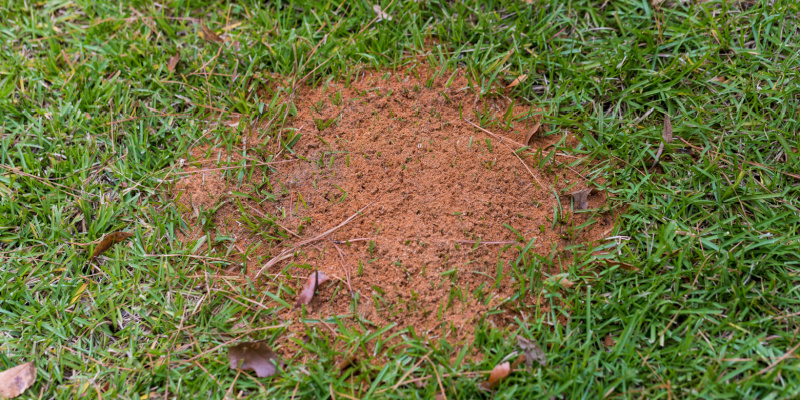Dealing with insects in your yard can be a challenging and frustrating experience. These tiny pests can cause significant damage to your lawn, leaving you with an unattractive and unhealthy yard. But fear not! There are effective strategies and solutions to combat these pesky invaders. You can employ a number of DIY methods if you have the time and patience to do so. The key elements are to be consistent and get the timing right. You also have the option of bringing in a company that specializes in insects that damage yards to get help with the elements outside of your area of expertise. Whatever option you choose, here’s what you need to know to protect your lawn from insect damage.
Identifying the Culprit
Key Signs of Insect Damage:
- Brown patches
- Thinning grass
- Visible insects or larvae
- Increased bird activity (feeding on the bugs)
Common Lawn Pests in Ohio:
- Grubs
- Chinch bugs
- Armyworms
- Billbugs
Step-by-Step Approach to Tackling Lawn Insects
Step 1: Proper Identification
- Why It’s Crucial: Different insects require different treatments.
- How to Do It: Look for physical signs or consult with a lawn care professional.
Step 2: Assess the Extent of Damage
- Check Your Lawn’s Health: Determine if the problem is localized or widespread.
- Consider the Season: Some insects are more active in certain seasons.
Step 3: Choose the Right Treatment
Natural Solutions:
- Nematodes: Beneficial for controlling grubs.
- Diatomaceous earth: Effective against many crawling insects.
Chemical Treatments:
- Insecticides: Use as a last resort and follow label instructions carefully.
Step 4: Apply Treatment Effectively
- Timing: Apply treatments when pests are most active.
- Method: Ensure even and thorough application.
Step 5: Monitor and Follow-up
- Regular Checks: Keep an eye on your lawn for signs of recurring activity.
- Additional Treatments: May be necessary for persistent problems.
Preventative Measures
1. Maintain Lawn Health:
- Healthy lawns are less susceptible to pest infestations.
- Regular mowing, watering, and fertilizing are key.
2. Cultural Practices:
- Aeration: Improves soil health and reduces compaction.
- Proper Irrigation: Avoid overwatering, which can attract pests.
When to Seek Professional Help
In some cases, DIY methods may not be enough to tackle a severe insect infestation. Professional lawn care services offer:
1. Expertise:
In-depth knowledge of local pests and effective treatments.
2. Comprehensive Assessment:
A thorough evaluation of your lawn’s condition.
3. Customized Solutions:
Tailored treatment plans are based on your lawn’s specific needs.
4. Safety:
Proper handling and application of treatments.
Eco-Friendly Considerations
For those concerned about the environmental impact, there are eco-friendly options to explore:
- Organic Treatments:
Natural alternatives that are less harmful to the environment.
- Integrated Pest Management (IPM):
Combines cultural, biological, and chemical methods for a more sustainable approach.
Insect infestations in your yard can be disheartening, but with the right approach and some professional help, you can effectively manage and eliminate these pests. Start by identifying the type of insect and the extent of the damage, then choose an appropriate treatment method. Whether you opt for natural solutions, chemical treatments, or professional services, remember that prevention and regular lawn maintenance are key to keeping pests at bay. With diligence and care, your lawn can remain a healthy and vibrant outdoor space.

